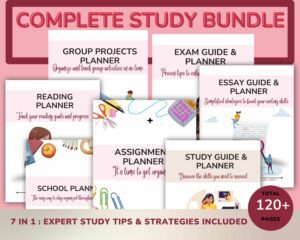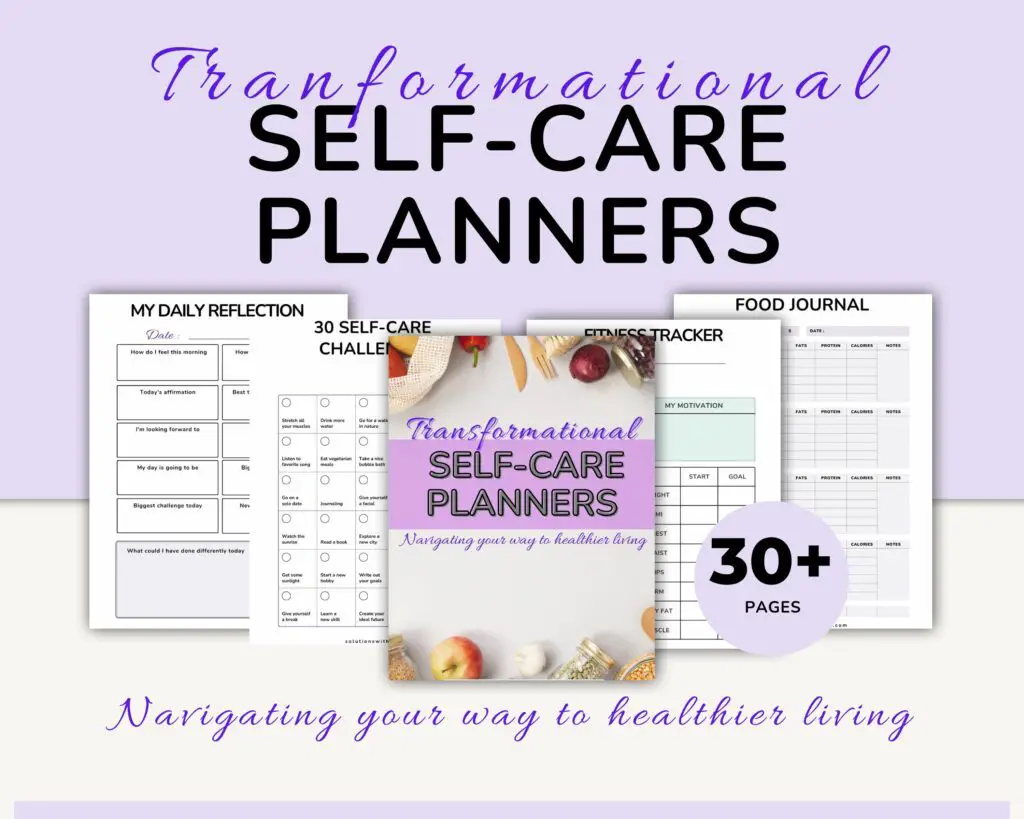Do you find yourself spending hours upon hours studying but still not getting the grades you want? Then, it’s time to study smarter, not harder.
Unfortunately, studying is a necessary evil for most of us. But, it doesn’t need to be as awful and tedious as we make it out to be. If you’re tired of studying for extended periods without getting the results you desire, this article is for you. It’ll provide all the information you need to study smarter, not harder.
- Do you find yourself spending hours upon hours studying but still not getting the grades you want? Then, it's time to study smarter, not harder.
- Want the perfect academic resource for your studies?
- Tips to study smarter not harder
- 1) Make a memory palace to study smarter not harder
- 2) Use visual imagery to study smart
- 3) Practice recall to study smarter not harder
- 4) Be curious to study smart
- 5) Associate to study smarter not harder
- 6) Categorize to study smart
- 7) Link to personal interest to study smarter not harder
- 8) Create rhymes and songs to study smarter not harder
- 9) Test yourself to study smarter not harder
- 10) Interleave study and review to study smart
- 11) Use the pyramid to study smarter not harder
- 14) Use the Rule of Five to study smart
- 15) Pomodoro technique to study smarter not harder
- 16) Discussion to study smart
- 17) Teach it to study smarter to harder
- 18) Be positive to study smart
- 19) Feynman technique to study smarter not harder
- 20) Mnemonic devices to study smart
- 21) SQ3R to study smarter not harder
- 22) Outlines to study smart
- 23) Study Guides to study smarter not harder
- 24) Flashcards to study smart
- Example of how to use various study techniques to study smarter not harder
- Final words on tips to study smarter, not harder
- Related Topics
- How to stay motivated to studying
- Study tips for visual learners
- READY TO TRANSFORM YOUR SELF-CARE ROUTINE?
Want the perfect academic resource for your studies?
This all-in-one resource is perfect for any person who wants to take charge of their academic journey.
The bundle includes a total of 7 printables, each equipped with multiple worksheets, trackers, and expert advice.
Tips to study smarter not harder
Here are some expert tips that will help you study smarter, not harder.
- Make a memory palace
- Use visual imagery
- Practice recall
- Be curious
- Associate
- Categorize information
- Link to personal interest
- Create rhymes and songs
- Test yourself
- Interleave study and review
- Your pyramid consists of the following layers
- Use the Rule of Five
- Pomodoro technique
- Discussion
- Teaching
- Be positive
- Feynman technique
- Mnemonic devices
- SQ3R
- Create outline
- Create study guides
- Use flashcards
Check out this informative guide that teaches you how to work smarter, not harder. You’ll learn unconventional strategies to improve your grade while spending less time studying.
Read also: 11 Tips to stay motivated to studying that actually work.
1) Make a memory palace to study smarter not harder
Visualizing yourself walking through a familiar place, such as your home or school, and attaching information you want to remember to specific spots in that location is one way of using visualization to remember information.
In fact, the more vivid the visual image you create, the higher will be your chances of recalling the information later.
As such, exaggerating the image and adding humor will likely be helpful.
The steps to create a memory palace are:
- Choose a location that is familiar to you and that has plenty of spaces to place images.
- Decide on the information you want to remember.
- Create mental images for each piece of information and place them in specific locations in your chosen location.
- Practice walking through your memory palace, placing the images, and recalling the information from memory.
- Once you have mastered walking through your palace in your mind’s eye, practice retrieving the information while walking through it in real life.

"Study everything, but study yourself first." - Ralph Smart
2) Use visual imagery to study smart
Creating a mental picture can help you more easily recall what you are learning. As such, if you are studying vocab words, visualize the image that goes with that word.
3) Practice recall to study smarter not harder
To study smart, practice recalling information immediately after you have studied it and at various intervals afterwards. Actually, this strategy will help you study smarter by strengthening your ability to remember.
4) Be curious to study smart
Asking yourself questions about what you are learning is another way to better remember the information.
In fact, being curious will help you keep an open mind and make learning fun. Plus, asking yourself questions keeps your brain active and prepared for learning.
Read also: 14 Easy ways to become smarter without studying.
5) Associate to study smarter not harder
Linking new information to something you already know can help you understand and recall it later on. In other words, relate what you are learning to something else that is familiar to you.
6) Categorize to study smart
Arranging information into categories or “chunks” is another helpful way to remember and understand what you are learning. This is because grouping information by similarity helps your brain better retain it.
7) Link to personal interest to study smarter not harder
By attaching or linking new information to something that interests you, your attention and effort will be better focused on what you’re learning.
8) Create rhymes and songs to study smarter not harder
This is a fun learning technique that can help you to study smarter. Notably, by reciting phrases, rhymes, or songs out loud, you will be using more than one of your senses which can aid in memory retention.
Additionally, coming up with key words for the information that you are studying can aid in recalling the information when you need it.
9) Test yourself to study smarter not harder
A quick and easy way to study smarter is by testing yourself with flash cards or questions. By reviewing and answering the questions, you will be able to understand and retain more of what you studied.
10) Interleave study and review to study smart
To study smarter, not harder, try interleaving different topics instead of staying concentrated on one subject.
Notably, interleaving will force your brain to make connections between different ideas, which makes the information easier to remember.

"You have to get up every morning with determination if you want to go to bed with satisfaction." - George Lorimer
11) Use the pyramid to study smarter not harder
To study smarter, organize your study information in a pyramid. Notably, the top-level of the pyramid consists of concepts that are general.
On the other hand, third-level facts are very discipline-specific. This layer consists of things like facts, definitions, formulas, diagrams, case studies, examples etc.
Top Level
The first level of the pyramid is made up of big ideas, which you learn first. These are the concepts that cut across subject areas or disciplines.
For example, a top-level idea in math is “proportionality.” In history, a top-level idea would be “separation of church and state” or “balance of power.”
Second Level.
Under the big ideas come the subtopics that build upon them. These are obvious connections between top-level ideas and specific fields or discipline.
For example, under proportionality you would have a second-level concept such as “linear functions.” Under linear functions, in turn, would be third-level concepts such as intercepts and slope.
Third Level.
The third layer consists of detailed facts that relate top-level and medium-level ideas to specific disciplines; these are your “building blocks.”
14) Use the Rule of Five to study smart
Undeniably, you have only a limited amount of time to study, and you must use it wisely. To get the most from your study session, follow the Rule of Five.
This rule suggests that for every hour you spend studying, you should spend at least five minutes organizing what you learned in a way that will make it easier to recall later.
15) Pomodoro technique to study smarter not harder
The Pomodoro technique can be used to improve personal productivity and avoid procrastination.
The breaks or ‘rewards’ will help you stay motivated to use this technique over the long term.
Read also: Read also: Unravelling the Benefits of the Pomodoro Technique
16) Discussion to study smart
A great way to learn is to discuss the material with someone else. This can be done with a friend, family member, or study partner.
Not only will you be able to clarify any misunderstandings, but you will also be able to share ideas and insights.
17) Teach it to study smarter to harder
When you teach something to someone else, not only do you learn it better yourself, but you also create a more lasting memory for the information.
Actually, teaching is an excellent way to actively engage with your study material and increase your understanding and retention.
18) Be positive to study smart
It is important to be positive about your ability to learn and remember information.
In fact, if you are confident in your abilities, you will be more likely to try harder and achieve better results. As such, be sure to always give yourself due credit for your efforts.
19) Feynman technique to study smarter not harder
The Feynman’s technique is all about taking a step back from the material in order to understand it better.
As such, this technique is an excellent way to improve your comprehension and memory of the material, as well as master your public speaking skills.
So, if you find yourself struggling to make sense of a certain subject, try applying this technique to help break things down into smaller pieces (Cam, 2020).
Feynman Technique: Step-by-Step
- Identify the main points of the information. To do this, study the material carefully and take notes.
- Come up with examples or analogies that can help teach those points easily. This could include real-life examples, historical events, or fictional scenarios.
- Create a story or scenario that ties everything together. This should be a brief summary of the information that encompasses all of the main points.
- Repeat steps 2 and 3 as often as necessary to fill gaps until you feel confident that you understand the material.
- Practice delivering the story or scenario to others in a way that’s easy to understand. This will help you become more comfortable with the information and improve your public speaking skills.

"If it's hard, it's probably worth it." - Unknown
20) Mnemonic devices to study smart
These are tools that help you to remember information by creating associations between the material and something that is easier for you to remember.
Some common mnemonic devices include acronym, acrostics, and rhyme schemes.
21) SQ3R to study smarter not harder
This is a well-known study method that stands for survey, question, read, recite, and review. It is an effective way to make sure that you are comprehending the material as you go along.
It involves reading the material, asking yourself questions about it, summarizing what you have read, and then reviewing everything that you have covered.
This technique can be used for any type of material, from textbooks to articles to lectures.
The basic steps of SQ3R are:
- Survey the material. This means reading through it quickly to get a general idea of what it is about.
- Identify the main points or key concepts of the material. Take note of these and use them to answer questions throughout the course of your studying.
- Ask yourself a question related to any part of the material that you have already covered. This will help you better remember it later on when its time for review.
- Read the material again, trying to answer your question as you go along. This will help you understand things more clearly and improve your comprehension of the material.
- Recite what you have just read by saying it out loud or writing it down in your own words. The goal is to use this information to form a mental picture of it in your mind.
- Review everything that you have covered, making sure to practice any questions that you answered incorrectly.
Read also: 28 Proven tips to study effectively for exams
22) Outlines to study smart
This is a way to organize information in a concise and easy-to-read manner. Outlines can help you to see the big picture, as well as identify any gaps in your knowledge.
23) Study Guides to study smarter not harder
Study guides help you organize and review study materials. For the best results, study guides should include the specific topics that will be covered in the test, and some example questions about each one.
24) Flashcards to study smart
Flashcards are tools that help you to organize information in a convenient way. Usually, they include two sides with information on different topics. One side will have the question, while the other will have the answer. They are most often used to quiz yourself or others quickly.
Example of how to use various study techniques to study smarter not harder
In order to better understand how to study smarter, let’s take a look at an example.
Suppose you need to learn the following information for a test:
- The different types of economic systems
- The three factors of production
- The five steps of the product life cycle
1) Start by breaking down the information into manageable chunks.
For instance, the different types of economic systems can be divided into three categories: market economies, command economies, and mixed economies. The three factors of production are labor, capital, and land.
The five steps of the product life cycle are introduction, growth, maturity, decline, and death.
2) Next, focus on one topic at a time.
For example, begin by studying the different types of economic systems. Once you have a basic understanding of each one, move on to the three factors of production. And so on.
3) Use a variety of methods/techniques to learn the information.
This could include reading, writing, listening, and viewing. Be sure to vary your approach so that you are not doing the same thing over and over again.
4) Take practice quizzes.
Not only will this help you assess your level of understanding, but it will also give you a chance to test your knowledge under pressure.
5) Organize what you learned into a study guide.
This will help you review the material in a concise and easy-to-understand manner.
6) Get a friend or family member to quiz you.
This is an excellent way to practice your recall skills and identify any areas that need further review.
7) Take breaks.
Studying for long periods of time can be counterproductive. It is important to allow your mind to rest and rejuvenate itself.
8) Give yourself time to study for the test.
Don’t wait until the last minute. Sit down and go over everything several days in advance. This will help reduce stress and give you more confidence when it comes time to take the exam.
9) Review the material immediately after completing all of your studying.
then review it again a day or two later. This will enable you to strengthen your memory of the material before the exam.
10) Finally, stay positive about your ability to learn and remember information.
You may find it helpful to write out a list of times when you were successful in recalling information from memory. Focus on those experiences as you prepare for learning and test-taking.

“There are no secrets to success. It is the result of preparation, hard work, and learning from failure.” ― Colin Powell
Read also: 7 Study techniques to improve your learning ability.
Final words on tips to study smarter, not harder
Whether you’re trying to improve your grades or seeking new skills, it can be hard to find the time and energy required for success.
Fortunately, there are many ways to make studying smarter not harder.
Read also: 16 Study Tips For Slow Learners That Actually Work
What’s your best tips for studying smarter not harder? Let me know in the comments below.
Related Topics
How to stay motivated to studying
Did you know that motivation is one of the keys to success?
Yet, one of the most difficult aspects of studying is staying motivated.
One way to stay motivated is by creating achievable goals that you will feel good about accomplishing.
These small wins will make the bigger goal more manageable and help you stay on track for your long-term success. Read more
Study tips for visual learners
Are you a visual learner?
According to recent studies, 65-70% of people learn best through their eyes.
This means that for most people, traditional methods of learning such as listening to a lecture or reading a textbook may not be as effective.
If you are one of the thousands of students who struggle in some educational settings, don’t worry – there is hope!
READY TO TRANSFORM YOUR SELF-CARE ROUTINE?
It’s time to make self-care a delight instead of a chore.
This incredible free resource comes packed with features for tracking everything from your daily water intake to how many steps you take.
References
Cam (2020) The Feynman Technique
University of Pittsburgh (2021) Active Memorization
Rushana Greenidge-Horace












Leave a Reply